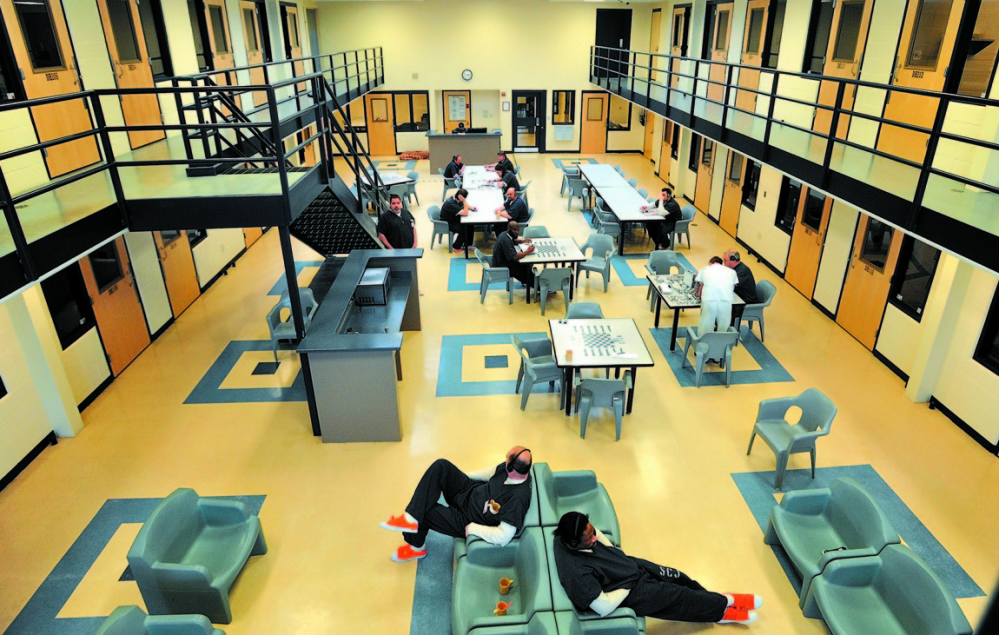Some jails have empty beds, other jails are so crowded they have to be expanded.
Some counties have new jails, others are century-old relics desperately trying to keep up with modern demands.
And all of them are reliant on municipal property taxes, which are unequally distributed and don’t factor in an individual’s ability to pay.
Sound familiar? That was the situation in 2007 when the Baldacci administration proposed consolidating all of the state’s county jails into a single system, in which they could share resources and use them more efficiently. That system never functioned as well as what was envisioned, but the Legislature’s latest response – letting each county fend for itself – is no improvement.
Now the counties will each get a share of a pot of state money, which will cover part of their jail’s budget. But they will not get enough for one county to house and feed inmates from another without charging a fee, and counties that have run out of room are wondering where they are supposed to get the money.
As a result, Mainers will collectively pay more than necessary to run an inefficient system, and the burden of covering increased costs will be on the property taxpayers. This is no solution and lawmakers have the responsibility of fixing this longstanding problem.
And this is a state problem. There are no county laws. Counties have no ability to increase or reduce the number of people who break state laws, and the Legislature creates new ways for people to wind up in jail every year. Long ago it was efficient to consolidate services at the county level, but today improved communications and transportation make the arrangement look unnecessarily haphazard.
Failures of the community mental health and drug treatment systems, both state responsibilities, put added pressure on the jails. These are not problems best handled 15 different ways at 15 different jails. It make sense to take a consistent approach that’s the same in each facility and to let the larger jails develop treatment programs available to inmates from other counties.
Funding the county jails remains a complicated issue that doesn’t lend itself to a simple solution. But we have got to be able to do better than this.
In Augusta, Kennebec County officials are looking to remodel the jail’s gym so they can set up bunks to house all their inmates. Meanwhile, about 35 miles down the road, the Somerset County jail has room to spare. The same scenario exists between the crowded Androscoggin County Jail in Auburn and the Cumberland County Jail in Portland.
Current law allows sheriffs to negotiate agreements to house each other’s inmates, and we hope that they will. But state officials should not look at those agreements as a solution but an opportunity to come up with a better system.
Send questions/comments to the editors.


